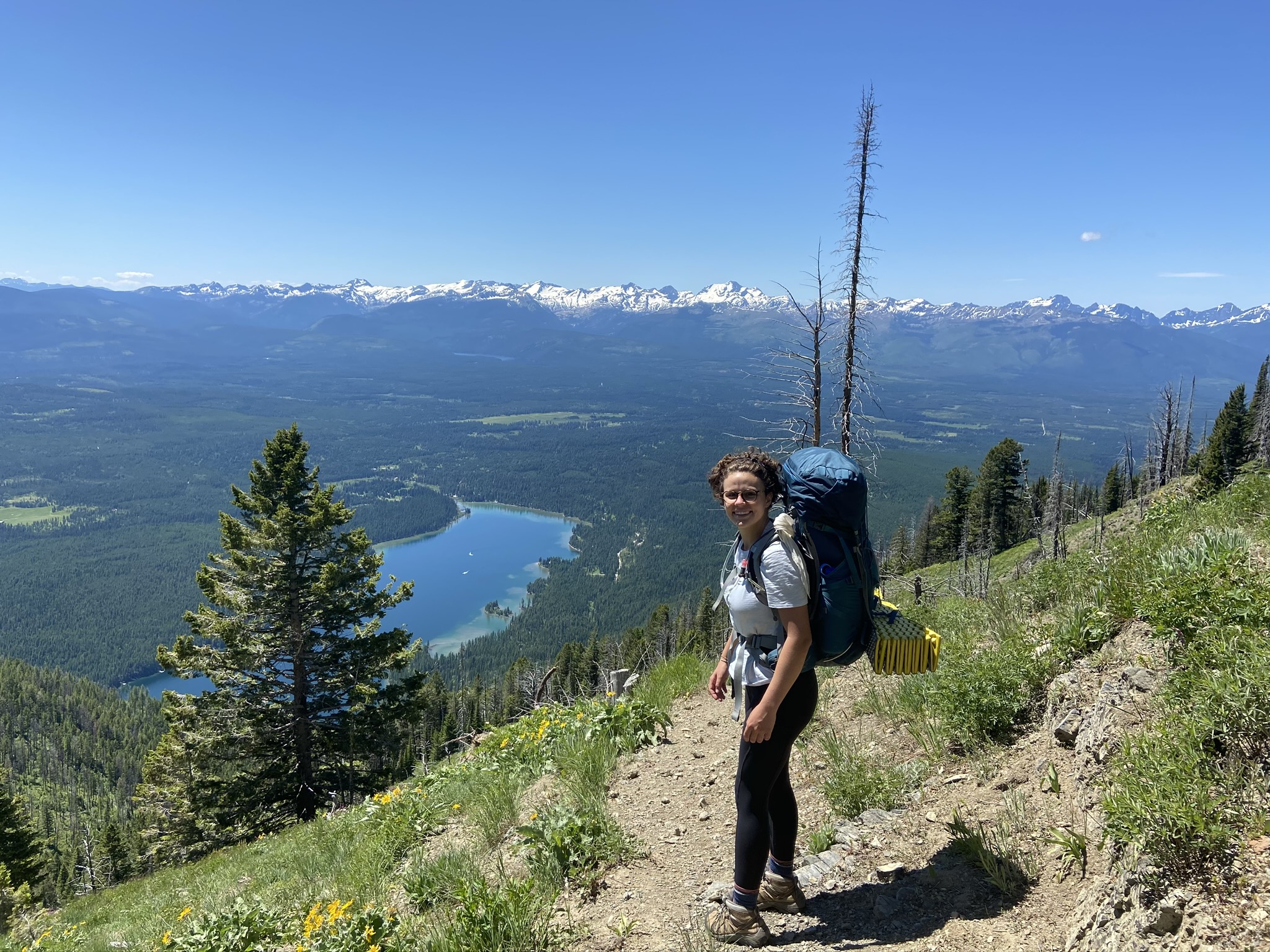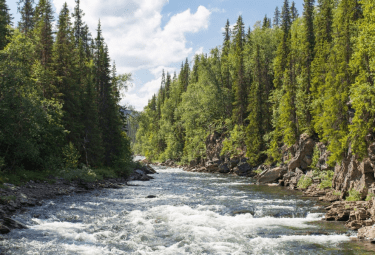Innovation to Impact. See you at the July ESIP Meeting.
Meet 2022 Raskin Scholar Colette Brown

In a false color MODIS image from 2015, burn scars across Alaska’s interior show up in red. Credit: NASA MODIS
The Raskin Scholarship is an annual award made by ESIP to a current graduate student in the Earth or computer sciences who has an interest in community evolution of Earth science data systems. The scholarship is named for longtime ESIP member Robert G. Raskin, and seeks to promote collaboration, research support and exposure for talented students in the Earth or computer sciences.
“Seeing the options for advanced technology and methods to develop practical solutions sparks determination in me to bridge ecosystem science and data science,” Brown said. “ESIP is a place to learn from people who have mastered the craft of combining data science and earth system science by having a keen awareness of the benefits and limitations of the methodologies in both fields.”
What I do: Connect what humans see to what computers can help us understand to uncover shrub trends in the Arctic after large disturbances.
Why I do it: Data science is the fastest way to help us get a better understanding of Arctic processes so we can develop effective climate adaptation strategies.

Colette Brown is a graduate student at the University of California, Berkeley and is the 2022 recipient of the Robert G. Raskin Scholarship from ESIP.
Raskin Scholarship
Through the Robert G. Raskin Scholarship, ESIP remembers Rob Raskin and his dedication to support the next generation of Earth science data and technology leaders.
Learn more: esipfed.org/raskin
Brown studies how to use remote sensing to expand plant survey assessments after tundra fires. These arctic burn scars are hard to reach, but are part of one of the most impacted landscapes from climate change. Her research is funded through a Next-Generation Ecosystem Experiments (NGEE)-Arctic project working with Margaret Torn and Yanlan Liu from UC Berkeley. Brown says she sees data science as a key to unlock some of the Arctic’s mysteries, especially to better predict carbon sequestration impacts. She has delved into 20 years of remote sensing data to develop machine learning (ML) algorithms for Arctic landscapes like the Anaktuvuk Fire burn scar and she will be heading to Alaska’s Seward Peninsula for fieldwork this summer.
“Teaching a computer to see like a human in the field is fascinating and not always intuitive,” Brown said, explaining that a human may note a plant’s greenness but an ML algorithm gets more clarity with soil moisture data. Her work focuses on making sure field-validated plant surveys line up with what an algorithm pulls from remote sensing images. “We don’t have a lot of time to understand the impacts of a changing climate, and data science can help us increase our knowledge quickly.”
At the ESIP Meeting in July, Brown will be presenting during Friday’s plenary session and awards ceremony. She plans to wrap up her studies in UC Berkeley’s Energy Resources Group in the next couple years. Brown’s enthusiasm for connecting climate and ecosystem data with remote sensing and ML makes her a strong contributor to the Earth science data community.



